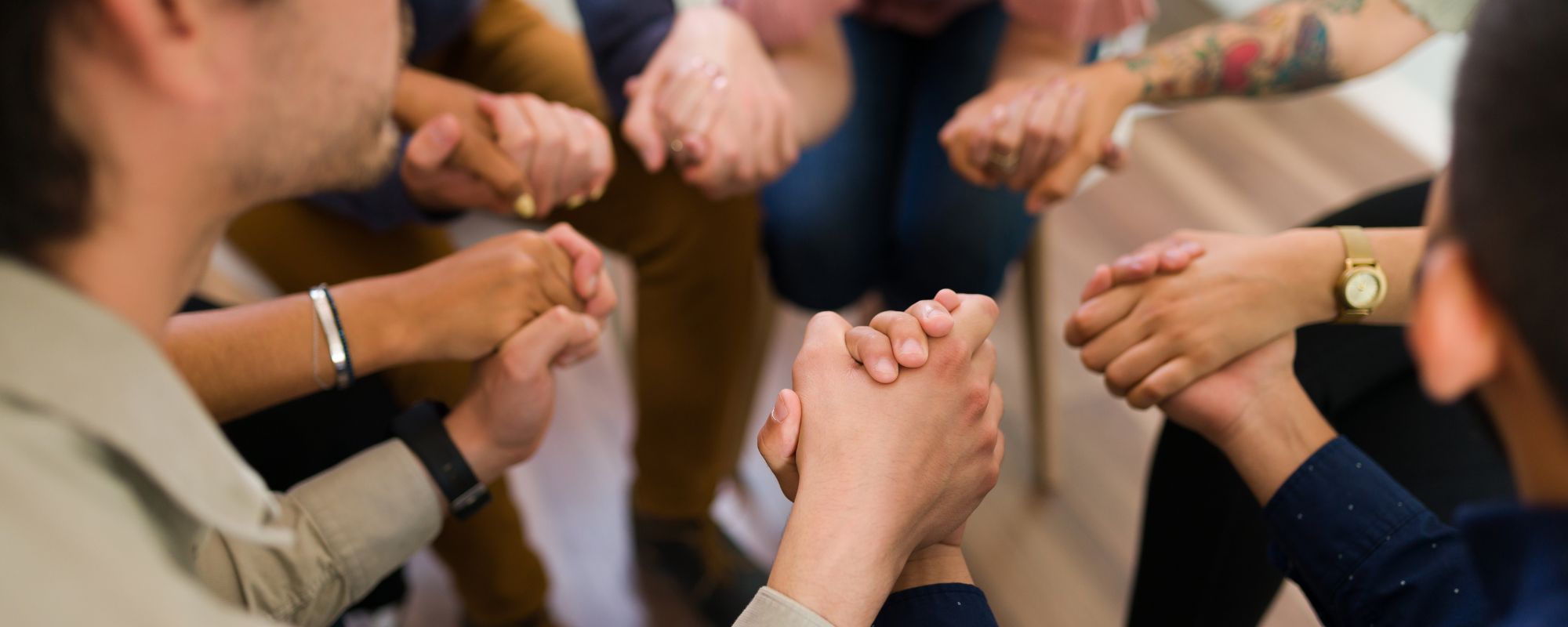Having a strong support network of friends is incredibly important during addiction recovery. Supportive friends can provide emotional encouragement, help you stay accountable to your goals, and remind you that you’re not alone in your journey. Positive social connections reduce feelings of isolation, which is a common trigger for relapse, and they can offer healthy distractions from cravings or negative thoughts. Research shows that trusted friends also serve as a source of motivation and stability, especially during difficult moments, helping you rebuild your life with connection, purpose, and hope. Here are examples of friends who benefit your recovery from drugs and alcohol
6 Types of Friends That Benefit Your Recovery
During addiction recovery, many people worry that they will lose their friends and remain alone. While this is entirely untrue, it is essential to acknowledge that sobriety weeds out the toxic friends. However, when poisonous friends are removed, sobriety makes way for new, healthy friendships. Whether you already have a sober support group or are in the process of growing your circle, it’s good to know what type of friends to look out for.
The 6 types of friends that benefit your recovery include:
- Socializer
- Explorer
- Confidant
- Nurturer
- Experienced friend
- Loyal best friend
The Socializer
The socializer is incredibly easygoing. First and foremost, the socializer welcomes anyone and everyone with open arms. Think about the confident person who first introduces themselves to you in treatment, AA, or NA. Additionally, their friendliness extends outward, introducing you to their other friends, forever growing the reach of the group. Kind and considerate, people love them, and they love people in return. Socializers are the event planners of the century, ensuring everyone receives an invitation to sober-friendly outings.
The Explorer
To put it simply, the explorer is the fun friend of the group. Their top priority is having a good time, and they’ll do whatever it takes to make it happen. Flakier than the socializer, the explorer hops from one friend group to another in search of the best plan, party, or event. Their lack of commitment is often forgiven as they envelop you in their vibrant personality and share amusing anecdotes. As a friend, they are memorable, bold, and wild. The explorer is not the most dependable friend, but they provide you with great stories and invitations to spontaneous road trips and parties. The explorer will remind you that just because you’re sober, it doesn’t mean you can’t have fun.
The Confidant
Everyone needs a confidant in their life. Providing comfort and security, a confidant is the friend you trust with your secrets. The confidant is there to lend an ear as well as a shoulder to cry on in times of vulnerability. When you need to vent about cravings or share a secret, the confidant will empathetically listen as you express your feelings. During your spill session, the confidant will absorb everything you say, providing insight and honest feedback tailored to your situation. Never judgmental, the confidant is the friend with whom you are most honest. The confidant reminds you that your emotions are valid and that you are essential.
The Nurturer
No matter your age, the nurturer is there to take care of you. The nurturer values the comfort of others. They often put the happiness of their friends before their own. A friendship with a nurturer will give you the tender care of a mother, as they attend to your wishes without you asking. The exhaustion that accompanies early recovery can be challenging to shake, but the nurturer sees your struggle and offers you the help you need. They are selfless and compassionate, serving as mediators for any arguments within the group. The nurturer makes you feel loved and valued, and is often the first person you turn to for help.
The Experienced Friend
Like an older sibling, the experienced friend shows you the ropes. They are dependable and wise, offering wisdom and knowledge about life in sobriety. The experienced friend never belittles you; instead, they guide you through recovery at a pace perfect for you. They expand your opportunities and educate you through learned lifehacks. Additionally, the experienced friend cheers you on through successes and motivates you to continue improving.
The Loyal Best Friend
You know them when you see them; the loyal best friend is your all-time favorite. The loyal best friend stays by your side through thick and thin. They are who you call in times of emergency because they’ve proven themselves trustworthy. An honorary part of the family, the loyal best friend is always there for you through all of your ups and downs. Even if you lose touch, the moment you see your loyal best friend, it’s as if no time has passed at all. At every possible moment, they remind you how proud they are of you and your sober lifestyle.
A Treatment Center Can Help
In addition to support from friends, a treatment center like Royal Life plays a crucial role in providing structured aftercare and ongoing support throughout recovery. While friends offer emotional connection, treatment centers offer professional guidance, relapse prevention planning, and access to therapeutic resources such as counseling, support groups, and medication management. Many facilities help individuals transition back into daily life through outpatient programs, alumni groups, and sober living referrals, reinforcing the skills learned during treatment.
When combined with a supportive personal network, professional aftercare services create a strong foundation for long-term sobriety, addressing both the emotional and practical challenges that can arise after initial treatment. This dual support system helps individuals feel empowered, understood, and better equipped to maintain a healthy, drug-free life.
Build Community In Treatment and Recovery
At Royal Life Centers, we know how difficult it can be to take the first step toward recovery. Admitting you need help takes immense strength and courage, and we’re here to support you every step of the way. Our outpatient rehab in Mead, Washington, provides evidence-based treatment designed to help you sustain your sobriety and build a healthier life.
With a dedicated team of experienced professionals, we offer the care and guidance you need to overcome addiction and build community and friendship in recovery. Take the first step today—call us at 877-RECOVERY or reach out through our secure contact form.
Authors
-
Content Writer
Allie Kraska serves as the Organic SEO Growth Manager for Aliya Health Group’s nationwide network of addiction and behavioral health treatment centers. She develops and implements content strategies, monitors and analyzes SEO performance, identifies areas for improvement, and optimizes marketing team efforts to increase visibility and sustain growth. When writing for Aliya Health Group, Allie aims to provide actionable recovery advice from an educated, experienced perspective. She earned her BA in English Language and Literature with a minor in Painting, Drawing, and Print-Making from the University of North Florida.
View all posts
-
Medical Reviewer
Dr. Lisa Tomsak, DO, serves as the Chief Medical Officer at Aliya Health Group’s rehab centers in California, Arizona, and Washington State. Since 2016, she has impeccably managed the medical services offered during detox, inpatient, and outpatient treatment. Dr. Tomsak is board-certified in both internal and addiction medicine, showcasing her comprehensive expertise in the field. She earned her Doctor of Osteopathy from Kansas City University of Medicine and Biosciences, following a Summa Cum Laude graduation from Wilkes Barre University.
View all posts








